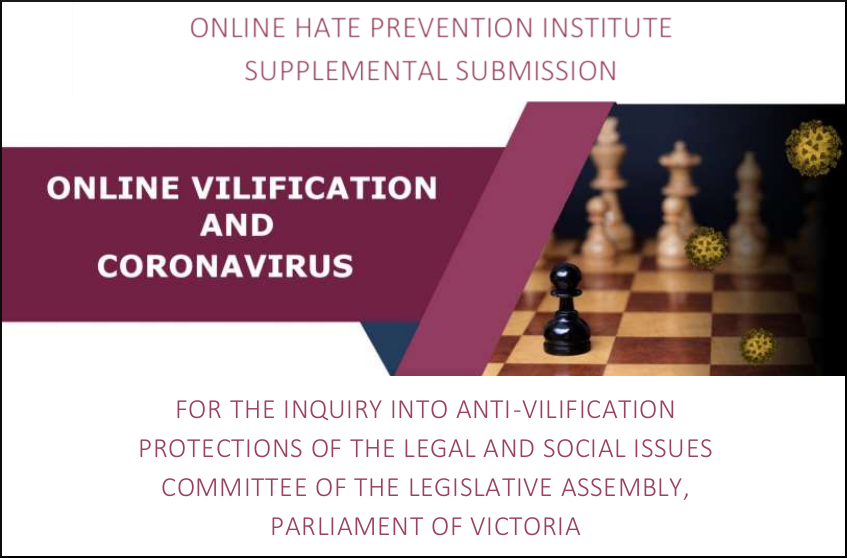
By invitation, the Online Hate Prevention Institute tabled a Supplemental Submission to the Inquiry into Anti-Vilification Protections: Parliament of Victoria on June 17th. The additional submission was requested in light of the impact of COVID-19. In the submission we were able to draw on a comprehensive body of material, a product of our examination of social media content during the pandemic.
Our submission covered a range of topics on vilification & hate during COVID-19, such as: Sinophobia & broader anti-Asian racism, Islamophobia, Antisemitism, racism against Indigenous Australians and Misogyny. We also reported on social media concerns beyond vilification. These included: the promotion of COVID-19 as a hoax, false legal information, blaming politicians and trivialisation of COVID-19.
Below is part of our Introduction to the Submission.
We thank the Committee for the opportunity to make this additional submission to the inquiry in-light of the impact of COVID-19 on vilification. The pandemic has led to a significant rise in online vilification and we expect this to have a lasting impact through the recovery period. We have, as a community, moved backwards as a result of this pandemic and the additional stress it has placed on society, communities and individuals.
As the only Harm Prevention Charity in Australia dedicated to protecting people by reducing online hate, we undertook a program of work examining social media content during COVID-19. This work, summarised in this submission, was completed to aid this Inquiry and at the request of Australia’s Race Discrimination Commissioner. This work involved an unscheduled campaign and a manifold increase in our work compared to when we last addressed the Inquiry in February.
Many crises today have an online element, from COVID to Christchurch, and we recommend this be factored into future crisis responses, particularly those which can generate spikes in online vilification. There are things which can be done to limit the harm to the Victorian community, but they require active partnerships and timely interventions, not to mention appropriate investment.
While some opportunities to limit the unfolding harm have been missed, there are further opportunities for timely intervention. A need for urgent engagement remains. We begin this submission by highlighting this need.
Dr Andre Oboler, Dr David Wishart and Mr Mark Civitella
17 June 2020
